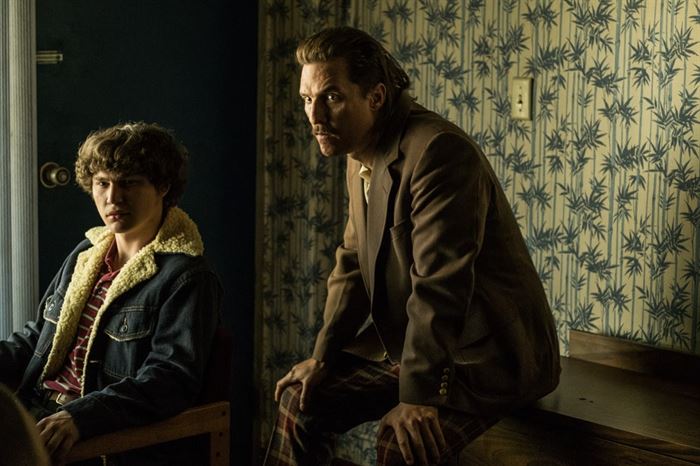Although the film benefits from an overall interesting plot and some noteworthy acting performances, “White Boy Rick” ultimately finds itself struggling due to an awkwardly written screenplay and inconsistent pacing.
“White Boy Rick” is French director Yann Demange’s second feature film in his career, having previously worked in mostly television productions. The film was written by Andy Weiss, Logan Miller and Noah Miller. Its team of producers are made up of Julie Yorn, Academy Award nominees Scott Franklin, Darren Aronofsky and Academy Award winner John Lesher.
The film takes place in 1980s Detroit and tells the true story of Richard “Rick” Wershe Jr., played by Richie Merritt. As a young teenager, Rick helps his father, played by Matthew McConaughey, sell firearms across the city. When the FBI threatens to take down Rick’s father for illegally selling weapons to Detroit gangs, Rick realizes that it’s up to him to protect his family. He decides to help the FBI infiltrate Detroit’s gangs and drug rings, becoming the youngest FBI informant in history. As he earns the trust of some of Detroit’s most notorious gangsters, he earns the moniker White Boy Rick.
The plot itself and the events of Rick’s early life are certainly interesting enough to keep one invested in its protagonist throughout its 116-minute run time. However, the film suffers from a lack of consistent pacing.
When Rick is first associating himself with some Detroit gangsters, he seems to become a part of their gang and earn their trust far too quickly. This may have been done to move the film forward into its central conflict in an effort to get straight to the point, but nonetheless, it still comes across as rushed and unrealistically effortless.
Scene lengths also don’t match each other. Obviously, every scene in a movie does not need to last the same amount of time as the others, but they should at least be proportionate with their significance to the film so that each scene feels necessary. Otherwise, you just end up with a film where certain scenes feel much more important and of higher quality than the others.
“White Boy Rick” also suffers from some fairly awkward dialogue. Several of the verbal interactions between characters throughout the film feel rather unnatural, with characters constantly repeating each others’ lines unnecessarily and conversations often feeling forced. Many of Merritt’s lines as Rick give off this vibe.
Don’t get me wrong, Merritt gave a pretty decent performance when considering the fact that this is his first ever feature film. Nevertheless, his acting still left much to be desired. His slightly slurred speech comes across as off-putting more than it does realistic, along with his emotionless delivery of many of his lines.
To be completely fair, this film does have its bright spots. Overall, the film is definitely interesting. The life of Wershe is certainly a story worth portraying on the silver screen. I found the last third of the film in particular to be the most engrossing portion of the entire movie.
“White Boy Rick” also features some noteworthy acting performances, specifically those of Bel Powley and McConaughey. Powley gives a convincing performance as Rick’s older, drug-addicted sister Dawn, while McConaughey does an exceptional job playing Rick’s father, often stealing the show in his scenes with his genuine, sincere monologues.
Despite an intriguing premise and a handful of strong performances, “White Boy Rick” has trouble finding its footing due to a subpar screenplay and inconsistent pacing throughout. It is a real shame because the movie had a lot of potential and was even getting Oscar hype leading up to its nationwide release. The trailer excited many moviegoers upon its initial release.
Although the film does have its merits, it ultimately fails to live up to the expectations set by its own trailer.



